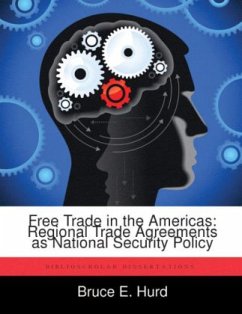Increasingly, America's security objectives are defined by U.S. economic interests. In Latin America, closed economies and authoritarian governments are transitioning to market-oriented systems and democratic institutions, resulting in increased goodwill and cooperation between the U.S. and Latin America. In 1993, President Clinton pushed hard and won congressional approval on the North American Free Trade Agreement (NAFTA) between the U.S., Canada, and Mexico. Along with this, he orchestrated the landmark Summit of the Americas in December 1994 between the U.S., Canada, and the democratically-elected leaders of Latin America and the Caribbean. The result of the "Miami Summit" was a proclamation that the nations of the Western Hemisphere would establish a hemispheric free trade area with a target date of 2005. However, in 1994 and 1995, the peso crisis, brought on by a series of problems within Mexico, caused that country's financial system to collapse along with the hopes for a hemispheric free trade pact in the near future.
Hinweis: Dieser Artikel kann nur an eine deutsche Lieferadresse ausgeliefert werden.
Hinweis: Dieser Artikel kann nur an eine deutsche Lieferadresse ausgeliefert werden.








